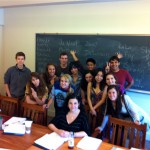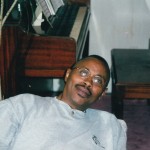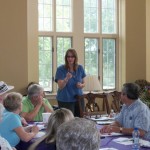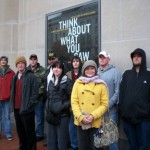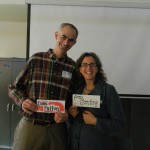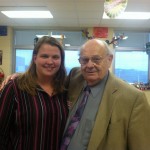Re-visiting “On Austrian Soil”
Forums › 2023 Summer Seminar › On Austrian Soil 2023 Summer Seminar Responses: due MAY 30 › Re-visiting “On Austrian Soil”
-
AuthorPosts
-
-
May 29, 2023 at 9:38 pm #31737
To revisit On Austrian Soil, I went back to look at what I wrote almost three years ago. I wrote then that I was struck by the quote, “You are not responsible for the past. But…we all have a responsibility to the future….The Ability to respond. The ability and the willingness to take another person’s words and questions seriously. Not to turn our backs. Not to be silent.” Since I wrote those words I read “Caste,” by Isabel Wilkerson, when there was talk of our cohort maybe having a book group discussion about it. I think Wilkerson’s analogy in “The Vitals of History” is spot on and connects with the passage from “On Austrian Soil.” She writes that when we go to the doctor, we give our medical histories, and those of our parents and grandparents before us. “It does us no good to pretend that certain ailments have not beset us, to deny the full truths of what brought us to this moment. Few problems have ever been solved by ignoring them,” Wilkerson writes. She goes on to say that “looking beneath the history of one’s country is like learning that alcoholism or depression runs in one’s family,” or suicide, or breast cancer, etc. “You don’t ball up in a corner with guilt or shame at these discoveries. You don’t, if you are wise, forbid any mention of them. In fact, you do the opposite. You educate yourself.”
Meanwhile, there are states that have proposed legislation restricting the teaching of topics that cause “guilt” or “shame” or even just discomfort among students. Groups are trying to purge school and classroom libraries of “woke” texts. Some people would have us ignore our vitals.
But teaching is not a morally neutral act. We are not responsible for the past, but we have a responsibility to the future. We have to push through the uncomfortable. Self-reflection, listening, responding, can be very uncomfortable, both on the individual level and on a societal level, but it is the only way we can open ourselves up to learn. Sondra describes her and her students’ experiences in writing and responding. It called for vulnerability, it was hard, it was emotional. But it enabled her and the teachers she was teaching to be whole human beings in the classroom. -
June 10, 2023 at 5:24 pm #31800
Hi Leslie,
So glad you revisited OAS. I agree that it has resonances with “Caste” — an amazing book. Looking forward to discussing soon when we meet in person. -
June 13, 2023 at 12:19 am #31829
Leslie,
I enjoyed reading Caste as well. When we silently turn away from our flawed pasts, we choose to not learn from them. Our humanity is stripped of empathy, personal responsibility, and accountability. If we choose to hide our flaws for the sake of protecting our children from feeling bad, then they will have less ability as adults to successfully encounter pain and suffering. More importantly, if our students have no knowledge of our country’s (or family’s) faults, they are free to believe in American exceptionalism. This version of history appears to give us a moral high ground, but the only ones that buy it are ourselves.
-
-
AuthorPosts
- You must be logged in to reply to this topic.
Recent Replies
Recently Active
-
Active 15 hours, 9 minutes ago
-
Active 2 days, 18 hours ago
-
Active 1 week ago
-
Active 1 week, 4 days ago
-
Active 1 week, 5 days ago
- View All Members

